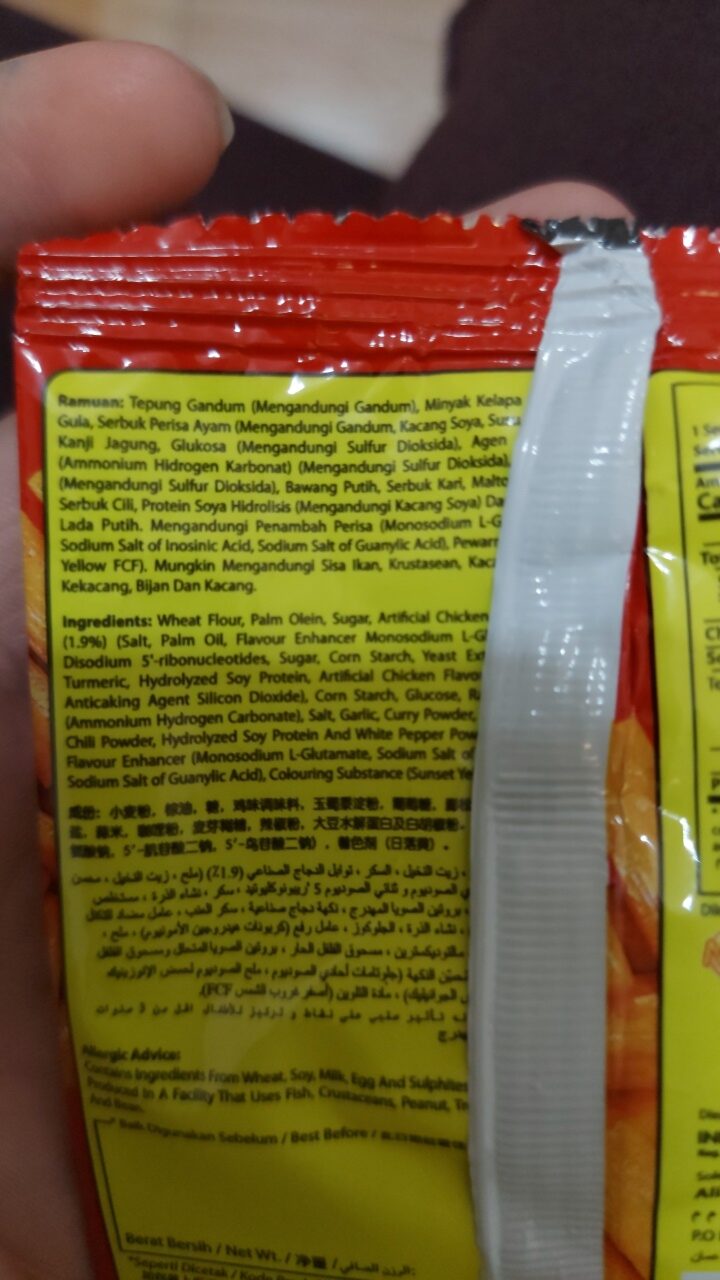
Barcode: 9556241000145
unknown
DOUBTFUL
📝 Reason: The product contains ingredients with doubtful Halal status due to missing Halal certification for meat-derived ingredients and unclear sources for some additives. Islamic dietary laws require clear evidence of Halal compliance for all ingredients, especially those derived from animals. The presence of doubtful ingredients necessitates further verification for Halal compliance.
📄 Certificates: None
Ingredients:
Details
Is the Product ‘unknown’ Halal? Understanding Its Ingredients
The halal status of food products is crucial for many consumers seeking to adhere to Islamic dietary laws. In the case of the product ‘unknown’, this status has been deemed DOUBTFUL. Let’s delve into the specific ingredients used in this product, explore their halal compliance, and discuss why obtaining halal certification is essential.
Halal Status Explained
The product ‘unknown’ contains certain ingredients and additives that raise significant concerns regarding their halal status. Islamic dietary laws necessitate clear evidence of halal compliance, particularly for meat-derived ingredients. The absence of halal certification for some components creates ambiguity that might affect the consumer’s decision.
Ingredients Breakdown
Here is a detailed examination of each ingredient found in the product:
- wheat flour – Generally considered Halal.
- palm olein – Plant-derived and generally considered Halal.
- sugar – Generally considered Halal.
- artificial chicken – Status is doubtful due to missing halal logo.
- salt – Generally considered Halal.
- flavour enhancer monosodium l-g (E621) – Monosodium glutamate, generally considered Halal.
- disodium 5′-ribonucleotides (E635) – Generally considered Halal.
- corn starch – Plant-derived, generally considered Halal.
- yeast extract – Generally considered Halal.
- turmeric – Plant-derived and commonly recognized as Halal.
- hydrolyzed soy protein – Plant-derived, generally considered Halal.
- artificial chicken flavor – Status is doubtful due to missing halal logo.
- anticaking agent silicon dioxide (E551) – Generally considered Halal.
- glucose – Generally considered Halal.
- ammonium hydrogen carbonate (E503) – Generally considered Halal.
- garlic – Plant-derived, generally considered Halal.
- curry powder – Plant-derived, generally considered Halal.
- chili powder – Plant-derived, generally considered Halal.
- hydrolyzed soy protein and white pepper powder – Plant-derived, generally considered Halal.
- flavour enhancer monosodium l-glutamate (E621) – Generally considered Halal.
- sodium salt of guanylic acid (E627) – Generally considered Halal.
- coloring substance – Status is doubtful due to unspecified sources.
- sunset yellow fcf (E110) – Generally considered Halal.
- fish – Generally considered Halal.
- crustaceans – Halal status varies by school of thought.
- peanut – Generally considered Halal.
- soy milk – Plant-derived, generally considered Halal.
- egg – Generally considered Halal.
- sulphites (E220) – Generally considered Halal.
Key Concerns
Throughout our analysis, the primary concerns regarding the halal status of the product stem from:
- The presence of artificial chicken and its flavoring, as these do not have a halal certification.
- The ingredient coloring substance lacks specific source information, leading to doubts about its halal compliance.
- Crustaceans present variability in halal status, as different schools of thought may regard this differently.
The absence of a thorough halal certification process or credible sources for certain additives leads to an overall classification of this product as having a doubtful halal status.
Conclusion
For consumers who prioritize halal compliance, the product ‘unknown’ poses uncertainties that should not be overlooked. It is advisable to seek alternatives that are certified halal or provide a clearer breakdown of sourcing for all their ingredients, particularly those of animal origin. Always refer to trusted halal certification bodies to ascertain the halal status of any food product.

